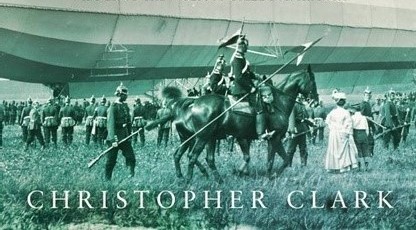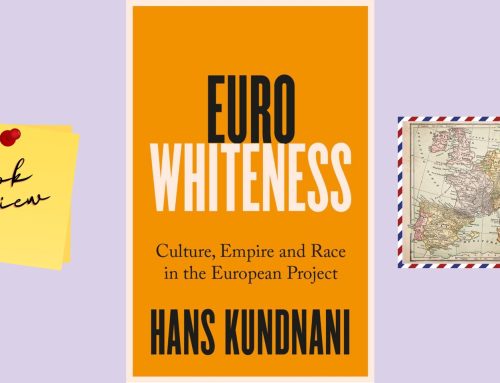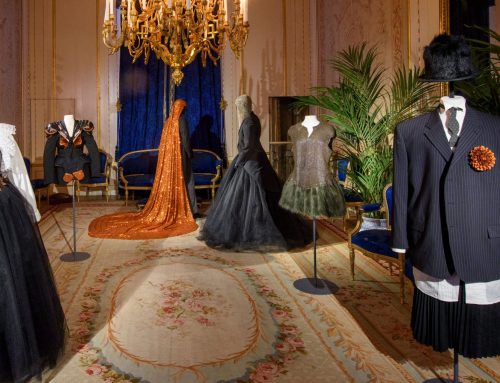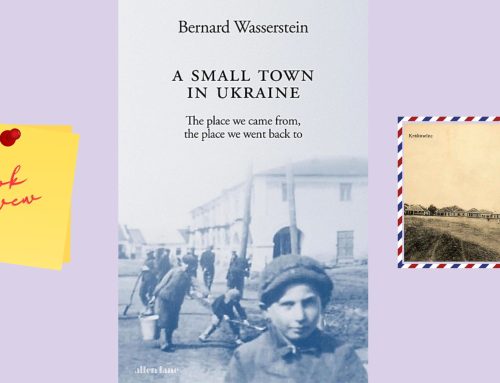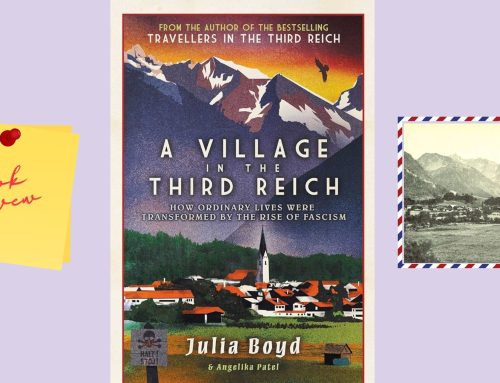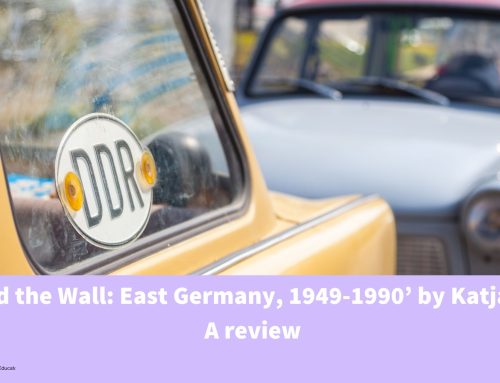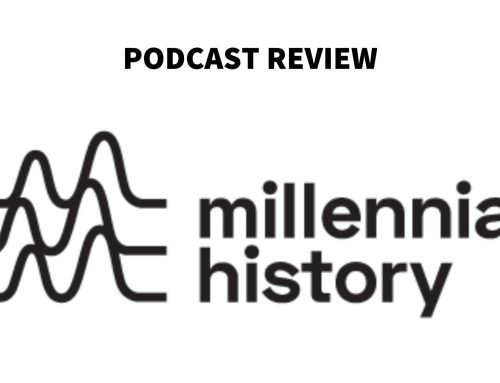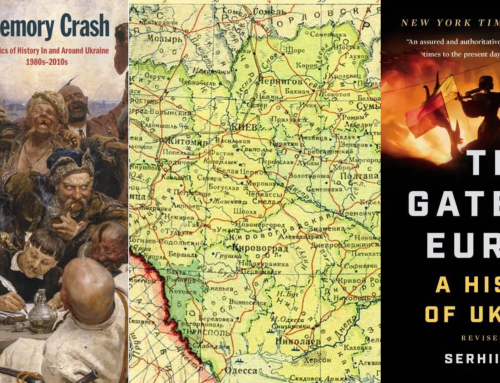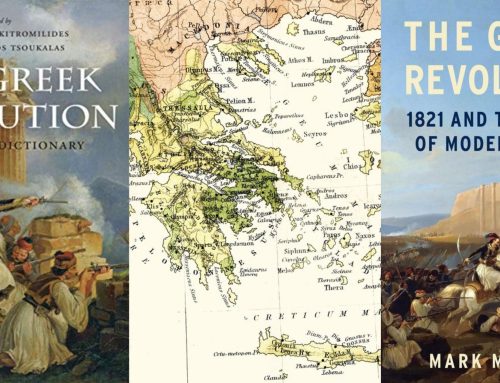It is strange how my historical interest has developed over time. During my studies, I focused on social economic history of the 19th century and got a flavor for what in Groningen was called ‘contemporary history’, the period after 1945 till the present-day. In my time as history teacher, I was required to concentrate on the (international) history after 1917. Germanys’ history from 1914-1945 featured very strongly in my teaching and consequently also in my reading. However, what happened before or after this critical and ill-fated period of German history, was of little importance, and consequently the context of these historical periods were addressed rather superficially. Prussia and its culture featured for me in a rather simple narrative: an aggressive, militarist country, which was the clear progenitor of the Nazi state.
Christopher Clark tells in his book Iron Kingdom: The Rise and Downfall of Prussia, 1600-1947 a much more nuanced story. His comprehensive, mainly political and military, history of Prussia certainly portraits Prussia’s development as a country with big power aspirations. However, it also demonstrates that such aspirations were shared with other countries in Europe in the same period, and that what happened during this period within those countries shared many resemblances of the events and developments inside Prussia.
Germany in 1600 is a patchwork of territorial fragments, and Mark Brandenburg, in the 18th century to become Kingdom Prussia, shows a similar pattern. The book illustrates how Prussia expanded over time, due to beneficial marriage policies and conquests, and how it eventually became one of the most dynamic and powerful nations in Europe. This, however, is not a clear-cut narrative. The country was heavily affected by the devastating Thirty Year War, ending in 1648, and had afterwards great difficulty to rebuild itself due to a deficit of significant natural resources. The Seven Years War and especially the Napoleonic period had as well deep negative effects on the state of the country. The expansion of the country revealed also the challenges posed by a lack of coherent culture between the different territories. Especially the nobility East of the river Elbe and the Rhineland demanded high skilled leadership in keeping unity from Berlin.
Iron Kingdom: The Rise and Downfall of Prussia, 1600-1947 is a book true to the ideas of multi-perspectivity, based on a variety of sources in several different European languages. His narrative tells us as well about the Prussian Enlightenment and following political reform policies, as about the conservative resistance and reversal of reforms. The chapter on Prussia between the two wars, informs us about a well led democratic state, an isle of tranquility in a very chaotic Germany. On the other hand the late 19th century on the contrary reveals a period of aggressive internal as well as international policy making. However, by looking beyond Prussia, it becomes clear how closely the Prussian experience resembles developments in other European countries. Clark refutes the special path narrative, what is so often applied to the history of Prussia, but also to German history in general. To his taste, too much of German history is written in a retrospective manner, giving significance to developments and events from a twentieth century perspective. The demise of Prussia in 1947 makes you realize how strong this imagery, created by historical and media narratives has worked: Prussia was the only German State dismantled by the Allies, due to its international reputation as reactionary, war-making and authoritarian State.
Why should you not read this book?
Iron Kingdom: The Rise and Downfall of Prussia, 1600-1947 has a rather traditional approach to history: it looks at the history of Prussia from a mainly political and military point of view, featuring many (aristocratic) men and very few women or people presenting other social strata in society. I would have liked to have learned more about everyday life in Prussia, hence to see more focus on cultural, social and economic history. Clarks’ use of numbers is a little careless; lots of (big) numbers are used without too much reference and without hesitation.
I also presume that I am not the only one with limited knowledge of Prussian history and therefore think that a pedigree of the Hohenzollern family would have been helpful. Especially for the early period, I found it difficult to understand which Elector, Frederick or Wilhelm Frederick was in charge. A list of the main events could have supported me to follow the main line. The edition I read provides maps, showing the extension of the Brandenburg/Prussian State and some theaters of wars. However, definitely for the earlier periods, some more and detailed maps, indicating sites of the mentioned battle fields and other events would certainly have been helpful, after all the map of this part of Europe is entirely changed. I also missed a bibliography.
Why should you read this book?
Iron Kingdom: The Rise and Downfall of Prussia, 1600-1947 is an incredibly rich book, which opens not only a panorama on the past of Brandenburg/Prussia but also on a long period of European history. It is well written and despite the fact that it covers chronologically 350 years of history, it is enthralling literature, every time asking new questions regularly reversing traditional narratives.
Clarks’ early work was on Judaism in Prussia. In Iron Kingdom: The Rise and Downfall of Prussia, 1600-1947 he applies this special research field by explaining the ambivalent and wavering attitude towards this population group over time. The Prussian Enlightenment opened the road to Jewish emancipation. However for Christian Prussians, but also for many Jews themselves, this emancipation meant to forego the Jewish religion and convert to Christianity. Consequently, as many as four out of the six children of the famous Jewish philosopher Moses Mendelsohn converted to Christianity. The late 18th Century (and also later) Prussian discourse about the Jewish emancipation and citizenship shows many similarities with the current debates about citizens of Islamic faith in many European countries.
There are also parallels with contemporary debates and attitudes in the story of the Culture War, launched by Councilor Bismarck in 1871, against the Catholic citizens of Prussia. His distrust about their loyalty to the State drove him to severely persecute them. However, the outcomes were contradictory to his goals: he only strengthened the Catholic community creating even as what Clark describes as political Catholicism. In the same period Bismarck overthrew the traditional ambivalent Prussian policy towards the Poles between tolerance and repression in favor of a harsh integration policy. The effects of this policy provide ample food for thought about current debates on integration of migrants and minorities.
How can history, citizenship and heritage education benefit?
The book offers a wealth of examples when we want to think with students about the instrumentalisation of history, Clark addresses in Iron Kingdom: The Rise and Downfall of Prussia, 1600-1947 the remembrance cultures regarding several periods in Prussian history. A special focus is on the instrumentalisation of the Wars of Independence, the struggle against Napoleon, giving insights in the way this period is remembered directly after that time as well as in later periods. The memory about that era also reveals an interesting insight in changes but also in continuity in remembrance cultures, as many of the Prussian elements eventually became part of the German Imperial memory and also found their way in Nazi symbolism and enactments. And components even featured again in both the post- Second World War Germanys. And finally, I also think that the chapters about the way Prussia treated its minorities and migrants offer interesting materials for current classroom.
Iron Kingdom: The Rise and Downfall of Prussia, 1600-1947
| Author | Christopher Clark |
| Original title | Iron Kingdom: The Rise and Downfall of Prussia, 1600-1947 |
| Original language | English |
| Available in | German, Czech, Dutch, French and Polish |
| Language read | English |
| No. of pages | 750 |
| Genre | History |

